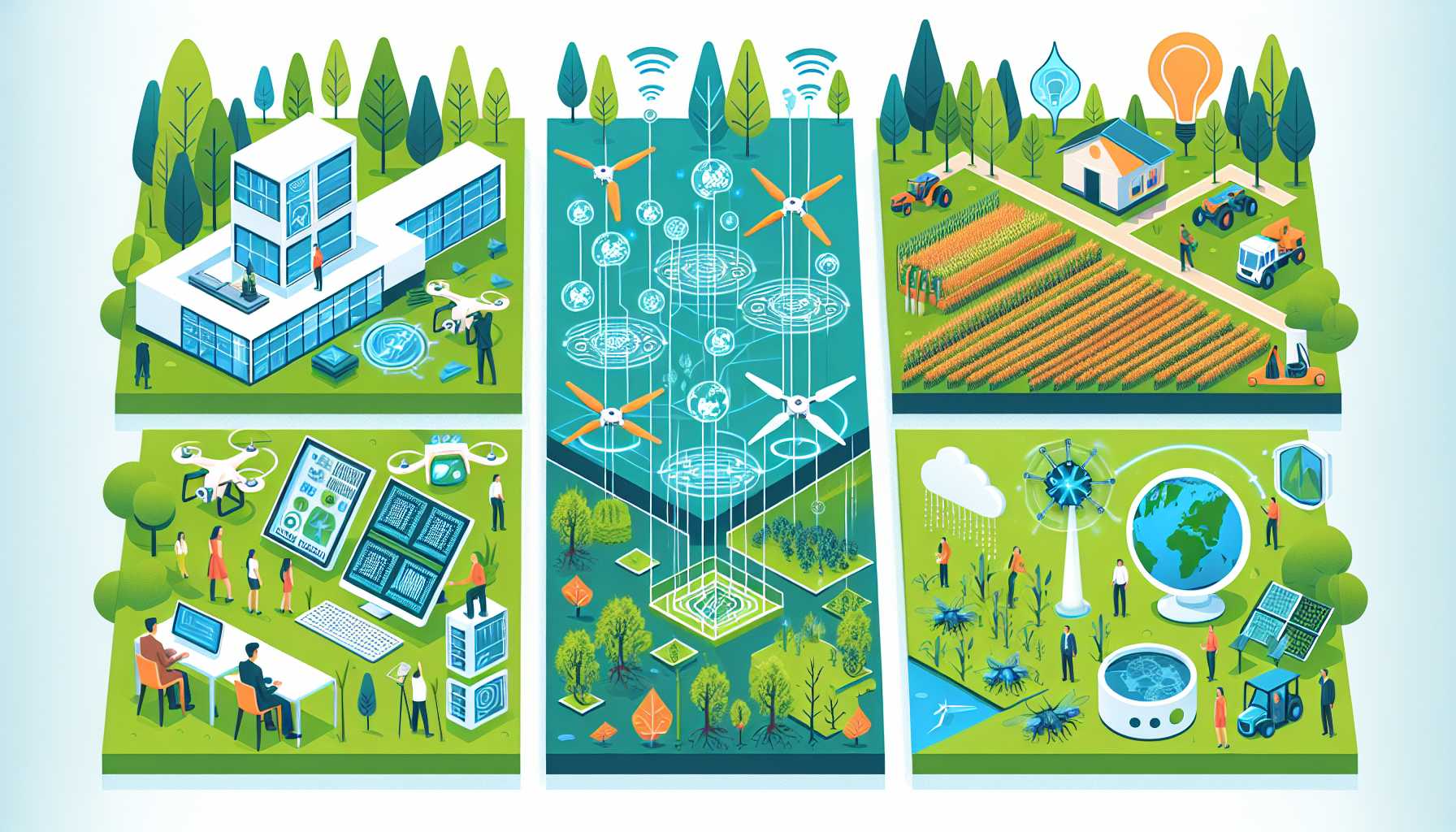
AI for Environmental Sustainability and Climate Action
The article explores how artificial intelligence (AI) can contribute to environmental sustainability and potentially help combat climate change.
i gisaneun ingongjineung (AI) i hwangyeong jijo ganeunseong-e giyeohago gihubyeonhwa-leul wanwahaneun de eotteoke doumi doel su issneunji-leul tamgu-hamnida.
이 기사는 인공지능(AI)이 환경 지속 가능성에 기여하고 기후 변화를 완화하는 데 어떻게 도움이 될 수 있는지를 탐구합니다.
It highlights four key areas where AI technology can make a significant positive impact: optimizing energy use, improving agriculture practices, enhancing conservation efforts, and advancing climate research.
AI gisul-i jungyohan geungjeongjeog-in yeonghyang-eul michil su itneun ne gaji juyo bun-ya-leul gangjohamnida: enoji sayong choijeoghwa, nong-eob gwanhaeng hyangsang, bojeon nolyeog ganghwa, gihu yeongu baljeon.
AI 기술이 중요한 긍정적인 영향을 미칠 수 있는 네 가지 주요 분야를 강조합니다: 에너지 사용 최적화, 농업 관행 향상, 보존 노력 강화, 기후 연구 발전.
By analyzing large datasets and improving efficiency, AI can reduce energy consumption, decrease waste in farming, monitor endangered species, and model climate scenarios.
daegyumyo deiteo seteu-reul bunseoghago hyoyulseong-eul nophim-euro-sseo AI-nun enoji sobi-reul juligo nong-eob-ui nangbi-reul julimyeo myeoljong wigi jong-eul monitoreuhago gihu sinario-reul model-linghal su issseubnida.
대규모 데이터 세트를 분석하고 효율성을 높임으로써 AI는 에너지 소비를 줄이고 농업의 낭비를 줄이며 멸종 위기 종을 모니터링하고 기후 시나리오를 모델링할 수 있습니다.
Moreover, the article emphasizes the collaborative potential of AI, suggesting that when combined with human creativity and commitment, AI tools can drive substantial changes towards a more sustainable future.
ttuhan, i gisaneun ingan-ui changuiseong-gwa heonsin-gwa gyeolhabdoel ttae AI dogugga deo jijo ganeun migye-reul hyanghan sangdanghan byeonhwa-reul ikeul su ittaneun hyeoblyeok ganeungseong-eul gangjohamnida.
또한, 이 기사는 인간의 창의성과 헌신과 결합될 때 AI 도구가 더 지속 가능한 미래를 향한 상당한 변화를 이끌 수 있다는 협력 가능성을 강조합니다.
It encourages a proactive approach, urging stakeholders to harness AI's capabilities responsibly while considering ethical implications and equity in technological access.
igeos-eun ihaegwan-gyeja-deul-i yeollijeog ham-ui mich gisul jeobgeunseong-ui hyeongpyeongseong-eul goryeo-myeonseo AI-ui neungryeog-eul chaegimgam itge hwalyonghal geos-eul chocuhaneun neungdongjeog-in jeobgeun bangsik-eul gwonjanghamnida.
이것은 이해관계자들이 윤리적 함의 및 기술 접근성의 형평성을 고려하면서 AI의 능력을 책임감 있게 활용할 것을 촉구하는 능동적인 접근 방식을 권장합니다.
In summary, AI holds promise as a powerful ally in addressing environmental challenges, offering innovative solutions across various sectors that can lead to a healthier planet if leveraged effectively and ethically.
yoyag-hajamyeon, AI-neun hwangyeong munje-reul haegyeolhaneun ganglyeoghan dongmaeng-eulo-seo-ui ganeungseong-eul gajigo iss-eumyeo, hyogwa-jeog-igo yeollijeog-eulo hwalyongdoen-damyeon dayanghan bun-yaeseo geonganghan jigu-ro ikeul su issneun hyeoksinjeog-in sollyusyeon-eul jegonghamnida.
요약하자면, AI는 환경 문제를 해결하는 강력한 동맹으로서의 가능성을 가지고 있으며, 효과적이고 윤리적으로 활용된다면 다양한 분야에서 건강한 지구로 이끌 수 있는 혁신적인 솔루션을 제공합니다.
Based on this article
